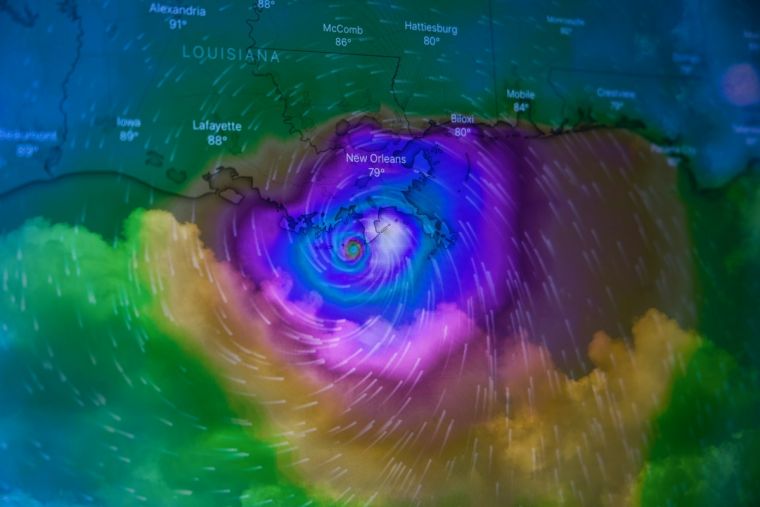Impact of climate change has cost the world billions - Christian Aid

Extreme weather events linked to climate change has cost billions of dollars in damage this year, says Christian Aid.
In a study released on Monday, the Christian NGO analysed 10 extreme weather events which it says were "influenced by climate change" and have come at huge human and financial cost.
Among them are Hurricane Ida which made landfall in Louisiana in August and was the second most destructive hurricane to hit the US after Katrina. It killed over 90 people and caused an estimated $65bn in damage.
Also highlighted in the report were floods across Europe over the summer which killed 240 people and cost a further $43bn in losses.
In addition to the financial cost and loss of life, the extreme weather events have also contributed to greater food insecurity and displacement, Christian Aid said.
For example, in Henan province, China, flooding caused $17.5bn of destruction, killed 320 and displaced over a million people.
Christian Aid said that the true financial cost was likely to be even higher as its estimates were based only on insured losses.
It also warned that extreme weather events were set to continue without further action to cut carbon emissions.
Report author and Christian Aid climate policy lead Dr Kat Kramer said: "The costs of climate change have been grave this year, both in terms of eye-watering financial losses but also in the death and displacement of people around the world.
"Be it storms and floods in some of the world's richest countries or droughts and heatwaves in some of the poorest, the climate crisis hit hard in 2021.
"While it was good to see some progress made at the COP26 summit, it is clear that the world is not on track to ensure a safe and prosperous world."
The release of the report, 'Counting the Cost', follows polling by Savanta ComRes which found strong support among the British public for climate change to be made a top government priority in 2022, even above healthcare and the economy.
Asked which issue should be the government's New Year's Resolution for 2022, over a quarter (27%) said climate change, followed by healthcare (23%), the economy (14%), social care (9%), crime (8%), housing (6%) and education (4%).
Dr Kramer added, "It is good to see the British public are aware of the threat caused by climate breakdown and want to see the government making action on climate change its New Year's resolution.
"It's striking that despite being in the middle of a pandemic, the public view this issue as a greater policy priority than both healthcare and the economy.
"If the Prime Minister wants to build on the legacy of COP26 he needs to ensure climate change is a government priority in 2022."











